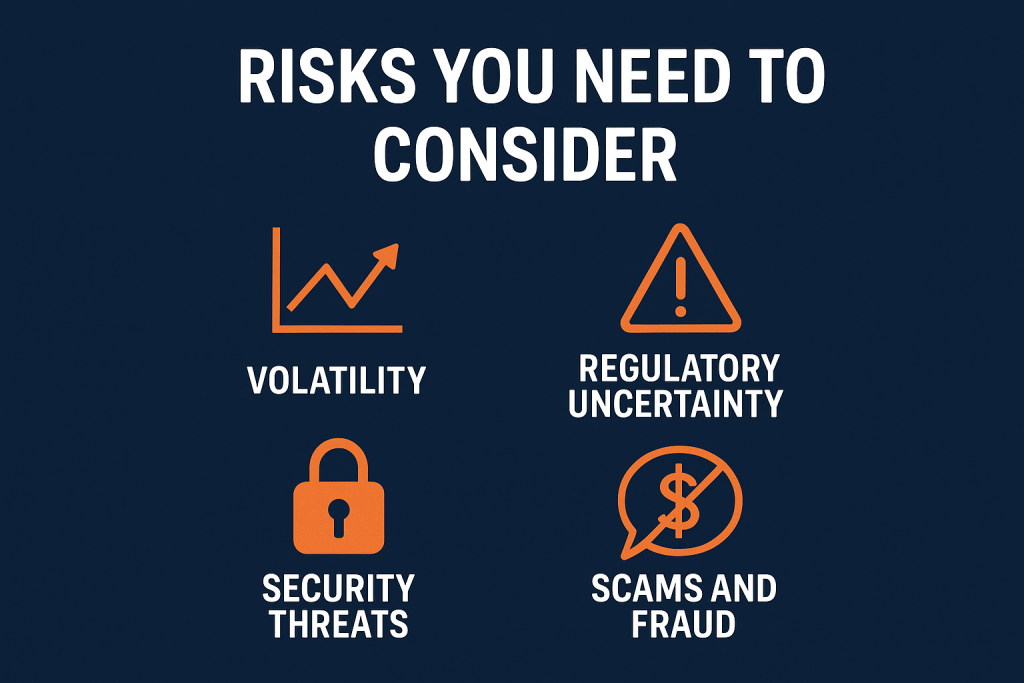Over the last decade, cryptocurrencies have transformed from a niche technological experiment into a global financial trend. Bitcoin, Ethereum, and thousands of other digital assets are now attracting investors of all levels, from small retail buyers to large institutions. While the opportunities in this market are promising, it is essential to approach cryptocurrency investing with caution, research, and a clear strategy.

Understanding the Basics
Cryptocurrencies are digital assets that rely on blockchain technology, a decentralized ledger that records transactions transparently and securely. Unlike traditional currencies, they are not controlled by governments or central banks. Bitcoin was the first cryptocurrency, launched in 2009, and it remains the most valuable by market capitalization. Since then, thousands of other coins and tokens have emerged, each with different purposes—ranging from powering decentralized applications to enabling faster payments.
For beginners, the most popular and trusted options are usually Bitcoin (BTC) and Ethereum (ETH). These two have strong track records, high liquidity, and wide adoption. However, other “altcoins” may also offer investment potential, though with higher risk.
Why People Invest in Cryptocurrencies
- High Return Potential: Cryptocurrencies are known for their volatility, which can lead to rapid price increases. Investors who bought Bitcoin in 2012 or Ethereum in 2016 have seen massive gains.
- Diversification: Many view digital assets as an alternative investment that can diversify a portfolio beyond stocks, bonds, or real estate.
- Innovation and Utility: Cryptocurrencies support new technologies such as decentralized finance (DeFi), non-fungible tokens (NFTs), and Web3, which are reshaping industries.
- Accessibility: Unlike traditional financial markets, crypto markets are open 24/7 and can be accessed from almost anywhere in the world.
Risks You Need to Consider

Despite its appeal, investing in cryptocurrencies carries significant risks:
- Volatility: Prices can rise or fall dramatically within hours or days, leading to potential losses.
- Regulatory Uncertainty: Governments around the world are still figuring out how to regulate digital assets. Sudden policy changes can impact markets.
- Security Threats: Hackers often target exchanges and wallets. If investors don’t secure their assets properly, they risk losing their funds.
- Scams and Fraud: The crypto space is still young, and fraudulent projects or “pump and dump” schemes are common.
How to Start Investing Safely
- Educate Yourself: Before putting in any money, spend time learning about blockchain, the specific cryptocurrencies you are interested in, and how exchanges work.
- Choose a Reliable Exchange: Platforms like Coinbase, Binance, or Kraken allow you to buy and trade cryptocurrencies. Make sure the exchange is regulated and has a strong reputation.
- Start Small: As a beginner, it’s best to start with a modest investment that you can afford to lose. Many experts recommend limiting crypto exposure to a small percentage of your overall portfolio.
- Use Secure Wallets: While exchanges offer built-in wallets, it is safer to transfer your holdings to a private wallet, especially a hardware wallet, for long-term storage.
- Stay Updated: The crypto market evolves quickly. Follow trusted news outlets and stay informed about new trends, regulations, and risks.
Long-Term vs. Short-Term Strategies
Investors typically adopt two main approaches:
- Long-Term Holding (“HODL”): This involves buying cryptocurrencies and holding them for years, with the belief that their value will rise significantly over time.
- Trading: Some investors take advantage of daily price movements to generate short-term profits. While this can be lucrative, it requires deep market knowledge, technical analysis, and tolerance for high risk.
Final Thoughts
Cryptocurrencies represent one of the most exciting and disruptive financial innovations of our time. For beginners, the key is to balance curiosity with caution. While the potential for profits is real, so are the risks. By starting small, diversifying investments, securing assets, and staying informed, anyone can explore this new market more safely.
In the end, successful cryptocurrency investing is not about chasing quick profits but about building knowledge, applying discipline, and having a long-term perspective.




